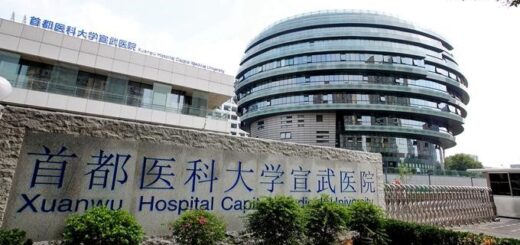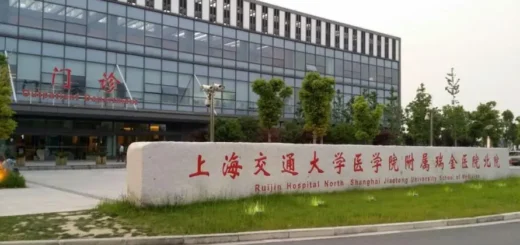Zhongshan Hospital Affiliated to Fudan University, Shanghai

Zhongshan Hospital Affiliated to Fudan University is a public institution affiliated to the National Health Commission and a comprehensive teaching hospital affiliated to Fudan University. Opened in 1937, the hospital is one of the earliest large-scale general hospitals founded and managed by the Chinese. It is affiliated to the National Shanghai Medical College and named in memory of Dr. Sun Yat-sen, the pioneer of China’s democratic revolution. After liberation, it was called Zhongshan Hospital Affiliated to Shanghai First Medical College and Zhongshan Hospital Affiliated to Shanghai Medical University. It was renamed in 2001 and is still in use today. It is one of the first batch of tertiary-level hospitals in Shanghai. After 80 years of development, the hospital headquarters currently covers an area of 96,000 square meters and has 2,005 approved beds. Since its establishment, there have been 3 academicians of the Chinese Academy of Sciences and 2 academicians of the Chinese Academy of Engineering. There are currently more than 700 people with senior professional titles.
The hospital has complete departments and strong comprehensive strength. The diagnosis and treatment of heart, liver, kidney and lung diseases are the focus and characteristics of the hospital, and the level of diagnosis and treatment has always been in the leading position in the country.
The hospital has 1 national clinical medical research center: Radiation and Therapy (Interventional Therapy) Center. 1 national project to improve the diagnosis and treatment capabilities of difficult diseases (cardiovascular and cerebrovascular direction). 1 national public health and major epidemic prevention and treatment system construction project. 1 national key discipline (respiratory) development project. 18 national key clinical specialty construction projects: gastroenterology, laboratory medicine, anesthesiology, cardiovascular medicine, endocrinology, thoracic surgery, cardiac and macrovascular surgery, clinical nursing, traditional Chinese medicine encephalology, respiratory medicine, nephrology, general surgery, critical care Department of Medicine, Oncology, Medical Imaging, Organ Transplantation, Emergency Medicine and Neurology. Four national multidisciplinary cooperative diagnosis and treatment capacity building projects for major diseases: digestive tract tumors, heart valve disease, severe pneumonia and early cognitive impairment.
The hospital also has 22 key clinical specialty construction projects in Shanghai: general surgery, cardiology, oncology, hepatobiliary surgery, respiratory medicine, pathology, ultrasonic medicine, nephrology, nuclear medicine, TCM emergency department, thoracic surgery, Medical imaging, medical laboratory, rehabilitation, anesthesiology, endoscopy, biomedical materials, organ transplantation, myocardial infarction, interventional therapy, minimally invasive surgery and clinical pharmacy. Three Shanghai women’s health service capacity building projects: critical maternal consultation and rescue center, maternal intensive care unit and prenatal diagnosis center. 3 “top priority” clinical medical centers in Shanghai: cardiovascular disease, liver tumors and kidney disease. There are 8 Shanghai clinical quality control centers affiliated with: nosocomial infection, ultrasonic diagnosis, respiratory medicine, cardiovascular medicine, thoracic and cardiac surgery, general surgery, general hospital traditional Chinese medicine work and hemodialysis. The hospital has advanced medical equipment, including helical tomographic adaptive radiotherapy system (Tomo), PET-CT, 320-slice 640-slice ultra-fast spiral CT, fully digital flat-panel cardiovascular imaging machine (DSA), linear accelerator, and 3.0T magnetic resonance tomography Scanners, da Vinci robotic surgery system, single photon emission computed tomography (SPECT), digital X-ray imaging system (DR), intensive care system and telemedicine teaching system, etc.










